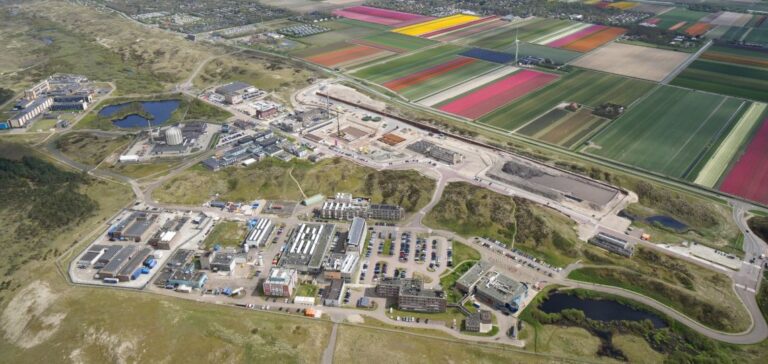The Dutch company NRG-Pallas has been contracted by the American company Kairos Power to carry out irradiation tests aimed at qualifying the fuels and materials for its future modular reactor. The results will enable Kairos Power to meet the requirements set by the U.S. Nuclear Regulatory Commission (NRC), a crucial step prior to the operational launch of its technology.
Rigorous Testing of Fuel and Materials
NRG-Pallas will utilize its High Flux Reactor (HFR), located in Petten, Netherlands, to assess fuel performance under actual irradiation conditions. These tests will provide Kairos Power with the necessary data to demonstrate the compliance of its fuel with the nuclear safety regulatory standards mandated by the NRC. Structural materials, particularly stainless steel intended for the reactor vessel, will also undergo specific irradiation tests to verify their strength and regulatory compliance.
The company will additionally carry out extensive testing of graphite properties used in internal reactor structures. The behavior of graphite under high neutron exposure is a critical parameter to ensure system safety. Post-irradiation results from these tests will serve as a significant reference within the NRC certification process.
Gradual Deployment of KP-FHR Technology
Kairos Power is developing a Fluoride Salt-Cooled High-Temperature Reactor (KP-FHR) utilizing ceramic TRISO (Tri-structural Isotropic) fuel in pebble form. The company has already begun construction of an experimental reactor named Hermes at Oak Ridge, Tennessee, authorized by the NRC in 2023. This experimental unit, with a thermal capacity of 35 MW, is scheduled to begin operation in 2027.
In parallel, Kairos Power is preparing the next stage with the Hermes 2 project, comprising two modular reactors generating a total of approximately 20 MW electric via a shared turbine. This second project recently received its final environmental assessment from the NRC and will also be built at the Oak Ridge site.
Strategic Partnership with Google
Kairos Power envisages a commercial offering based on plants equipped with two modular units of 75 MW electric each, thus reaching a cumulative capacity of 150 MW. Within this context, an agreement signed last year with Google anticipates the commercial deployment of the first KP-FHR reactors by 2030. These units will directly supply Google’s data centers through long-term power purchase agreements.
This project aligns with a broader trend of growing demand for stable energy, driven notably by the expansion of global digital infrastructure. According to Micah Hackett, Vice President of Fuels and Materials at Kairos Power, obtaining reliable irradiation data is essential to ensuring the company’s compliance with industrial and commercial timelines and cost commitments.






















